“Very early in the morning, my children and I go out to collect all kinds of plastic waste. We sell it and can earn between 1,000 and 1,500 CFA francs ($1,6-2,4 USD) a day. With this money we buy food for the household and if anything is left, we put some aside for other needs. In our situation this is our only means of survival,” says Koumbei Coulibaly.
Koumbei is the president of the plastic waste collectors’ cooperative in Faladié – a settlement on the outskirts of Bamako hosting people who have been forced to flee to the capital from other parts of Mali because of conflict.
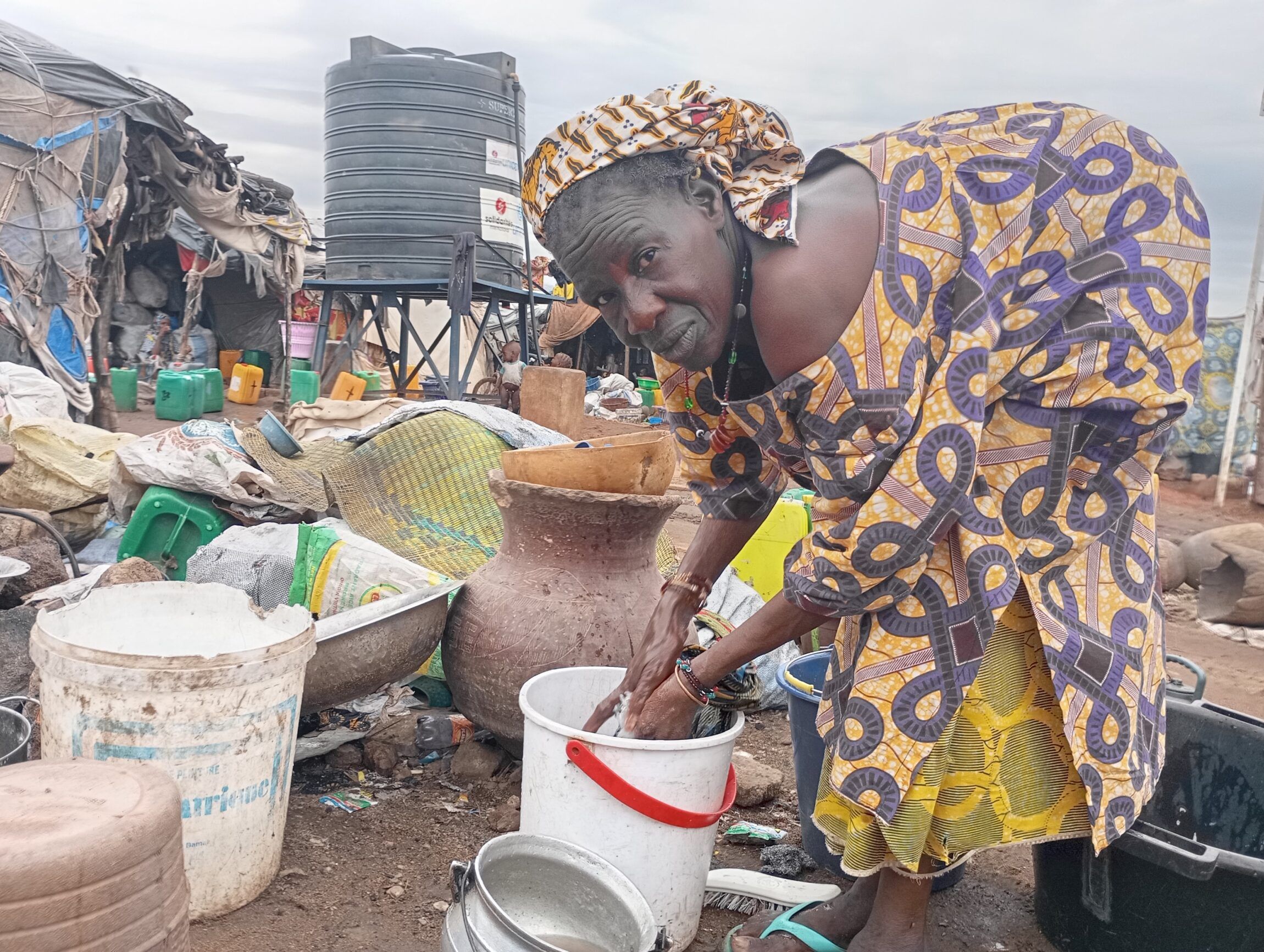
“We used to collect and resell, but now we collect, sort, process and resell for a bigger market and an even higher income,” says Koumbei Coulibaly, president of waster collector’s cooperative in Faladié.
The 60-year-old woman, her three daughters and three sons, have received training from DCA Mali on safe techniques for collecting waste, waste streams and value, as well as the role waste pickers play in protecting the environment as part of the RE-VERT Project.
“The training has opened our eyes and changed the way we look at waste. DCA has also provided machines for us that can add value to our work and enable us to sell more product,” explains Koumbei.
The RE-VERT project is implemented by DCA, with funding from the Danish Ministry of Foreign Affairs. It aims at creating incomes and bolster the economic resilience of people who have been forced to flee their villages in rural Mali and settle in Bamako – and the people in the community that hosts them in the Faladié settlement for displaced people.
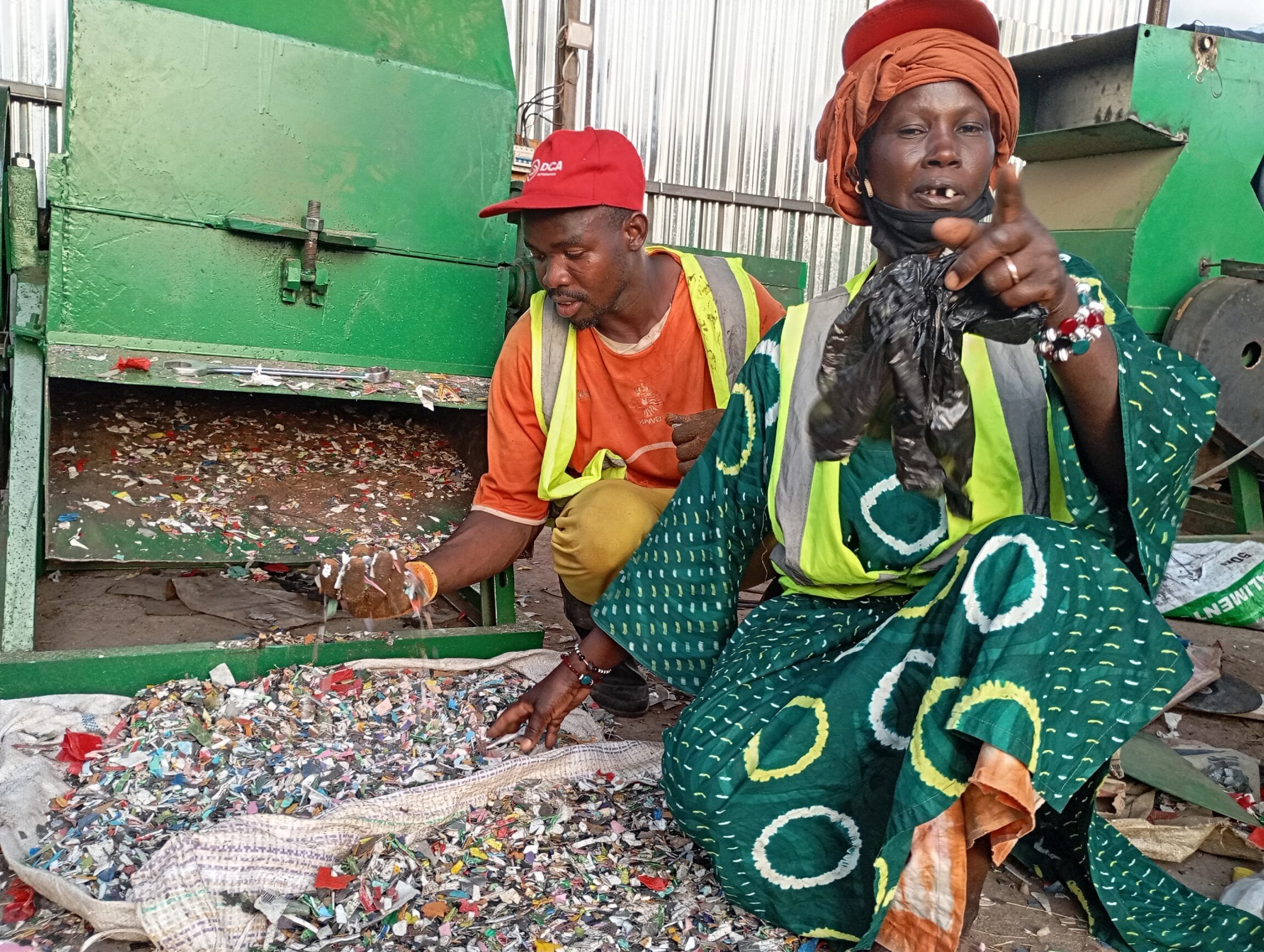
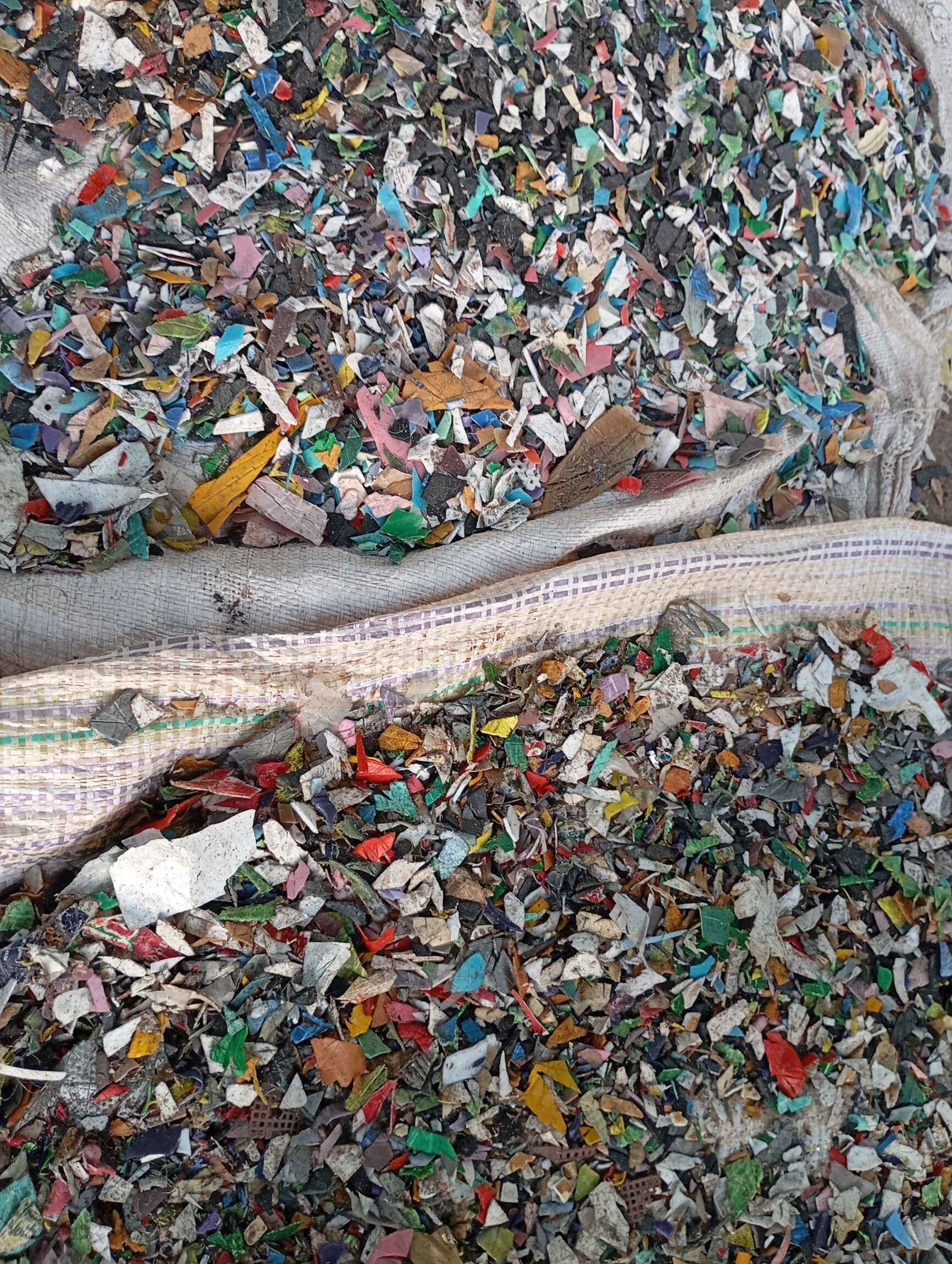
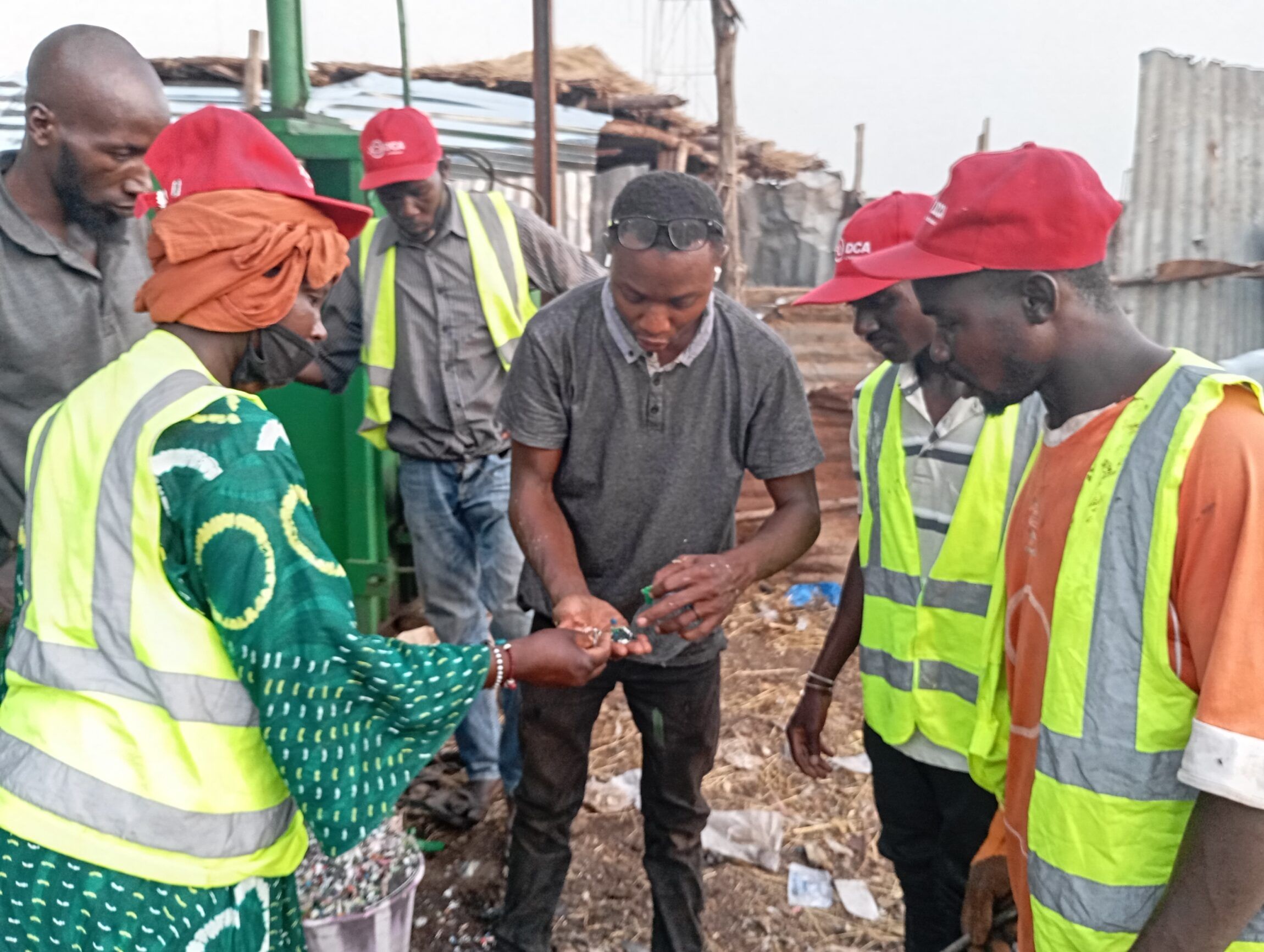
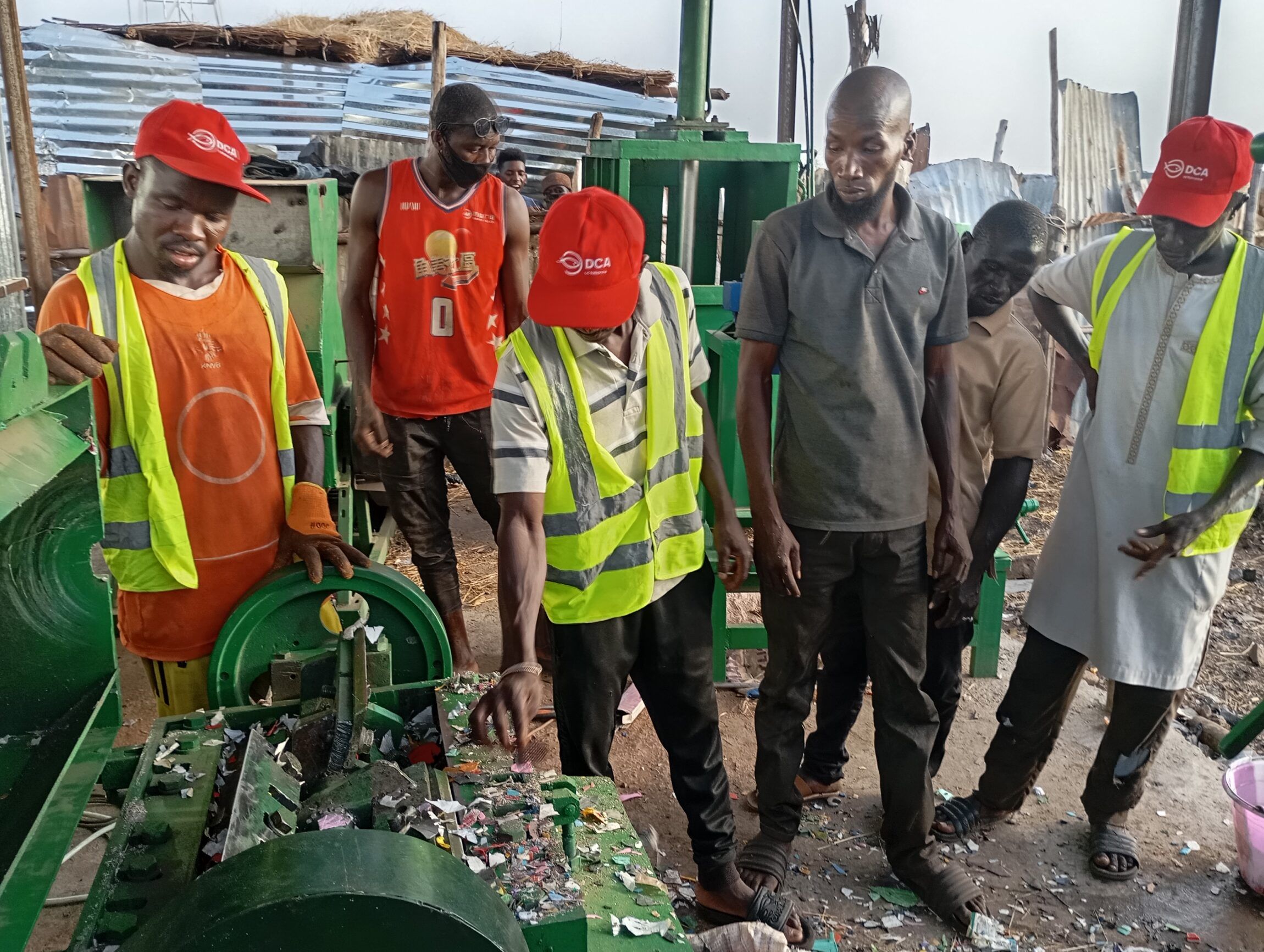
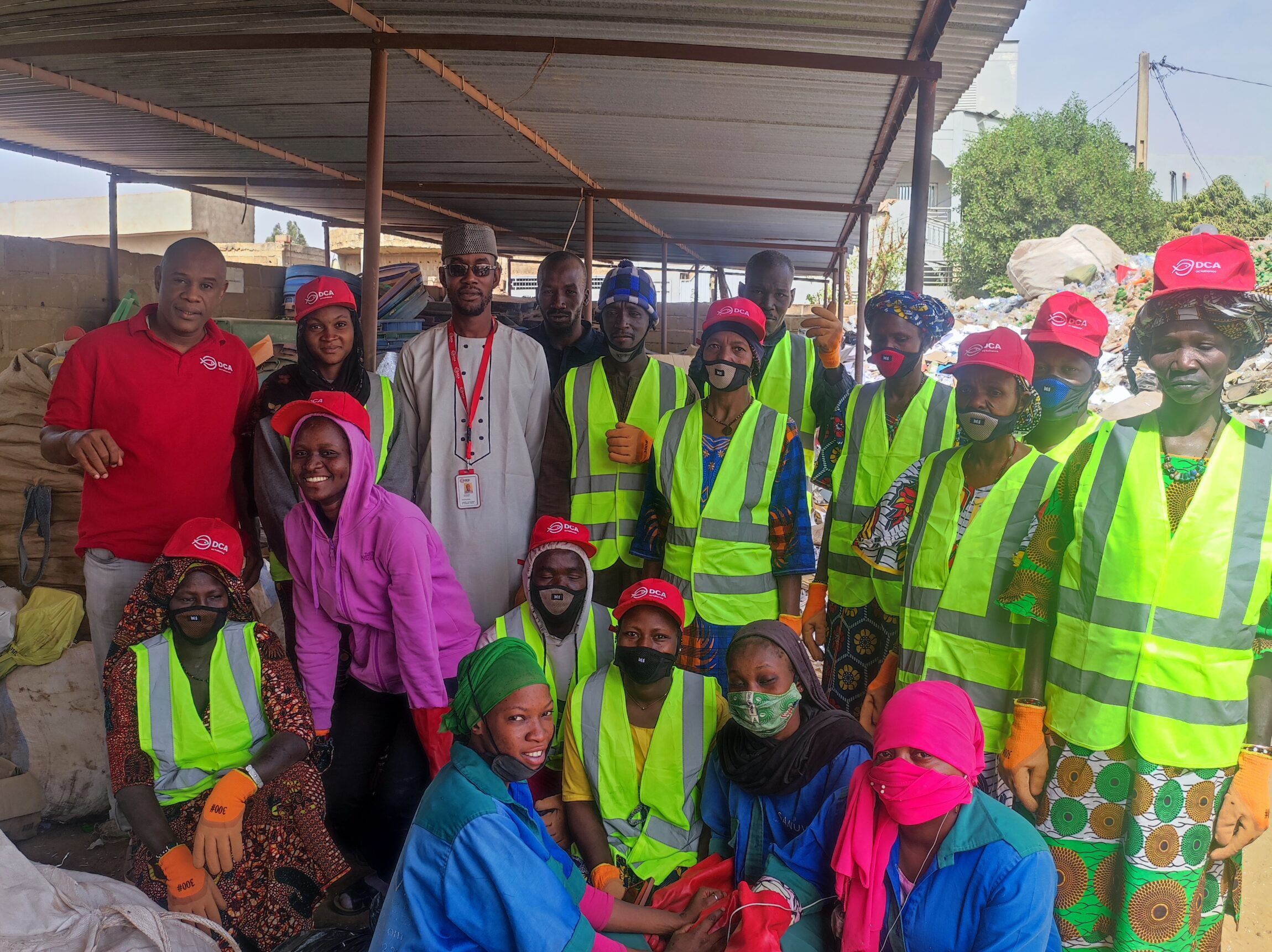
The main vehicle to creating an income for the people in and around Faladié is a circular economy approach based on the revalorization of solid waste.
The benefits are manifold – thanks to the training, the waste pickers are able to protect themselves and others as they go through the waste, they take part in protecting the environment when they take the plastic, and they earn a regular income too.

